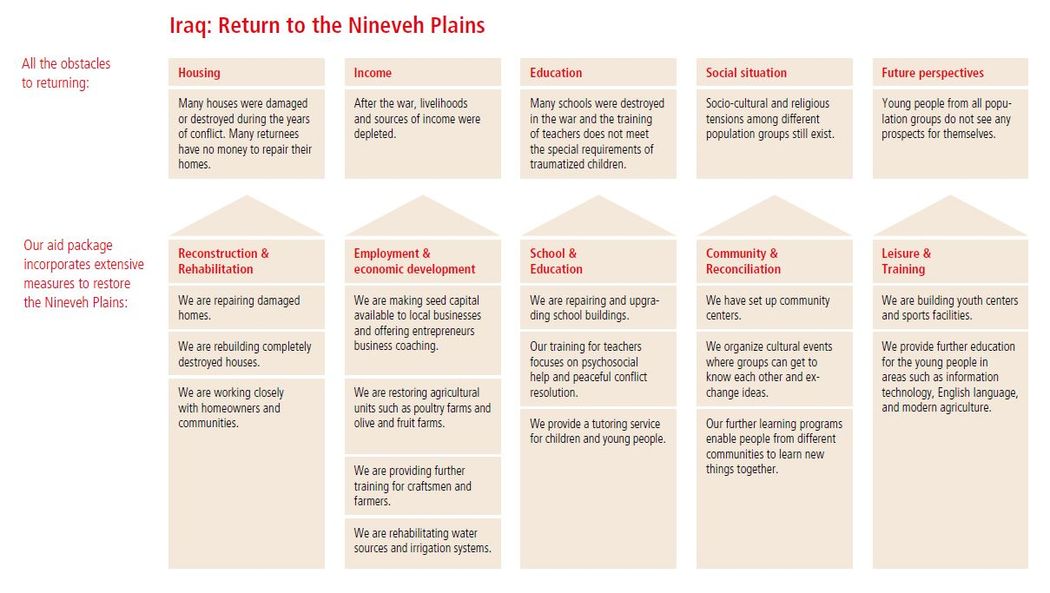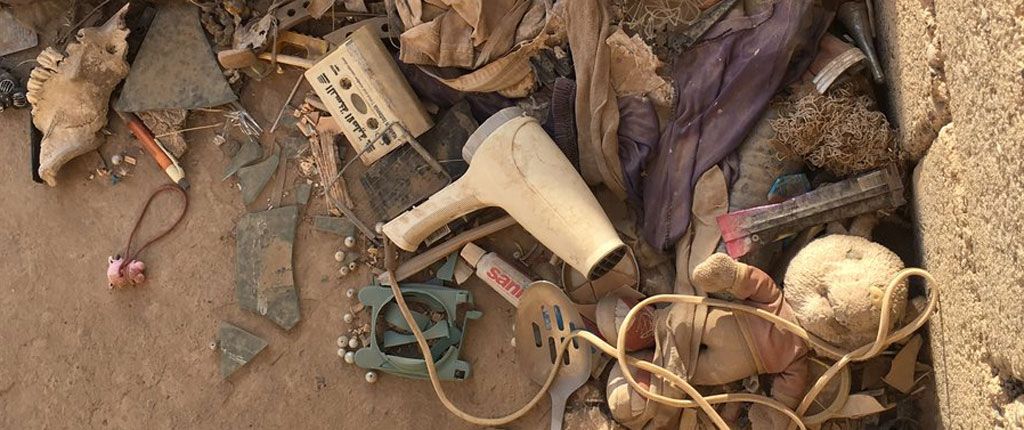
#WomenHumanitarians: ''People had a perfectly normal life before the war''
Eva-Lotta Schiermeyer, Malteser International‘s Program Manager for Iraq, is responsible for the development and implementation of our Nineveh restoration program. She has been involved with the program from the very start and shares her personal experiences of the region in this interview.
The Nineveh Plains saw great devastation during the years of conflict: What was it like for you to travel to an area that was almost completely destroyed by war?
Eva-Lotta Schiermeyer: Walking through the rubble of destroyed houses in the villages and towns of the Nineveh Plains for the first time, I suddenly became aware of the scale of violence and destruction that occurred there and how terrible the consequences must have been for the people.
The devastation I could see with my own eyes seemed very recent. I saw charred toys, dishes, hair dryers – everything that indicated a normal life for the inhabitants, just as we know it. I wondered whether the people had survived the attacks and how much time the families had to flee their homes.
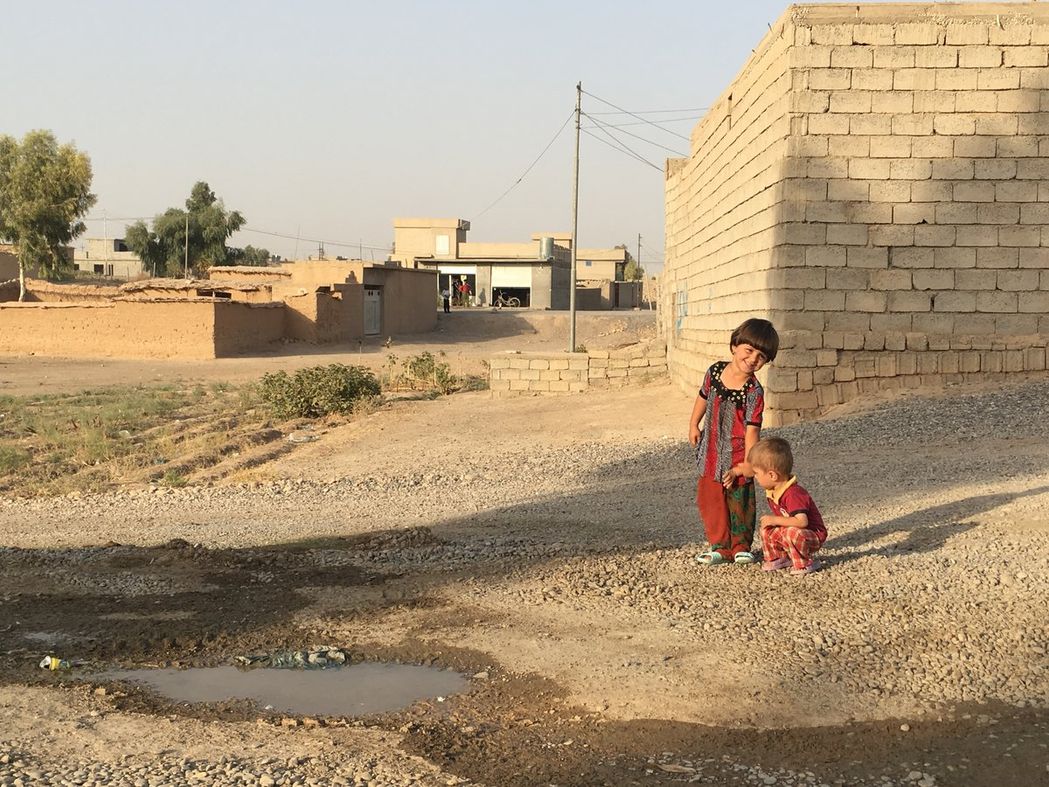
Malteser International, together with Aid to the Church in Need and the German Federal Government, has launched a comprehensive program for the restoration of the Nineveh Plains. What goals are we pursuing in the region?
ELS: We hope that our efforts will encourage as many people as possible to return to their homeland and settle there again in the long term. At the beginning, we looked at why those who were displaced stayed away. The destruction of their homes was of course a major reason. But there are also no schools and kindergartens, no job prospects for young people, no income opportunities, no community centers and no spaces for encounters. Years of hostility between the many ethnic and religious groups in the region meant that we had to try and develop solutions for all these problems.
What is it that makes the program stand out for you?
ELS: What makes the program stand out for me is that we have been able to develop a multi sectoral mix of activities that brings together solutions for all these different issues. In addition to constructing houses, we are also offering people services to help them re-establish their livelihoods, provide for their families and give their children a good education. We encourage intercultural leisure activities, such as joint courses, to promote peaceful coexistence between communities.
Our measures are intended to provide lasting incentives so that returnees can once again feel at home in their ancestral lands. We involve them directly in all our activities. For example, they help to rebuild houses, community centers and water canals in their home towns and get paid for their efforts. The cash-for-work measures are already giving them a sense of ownership and identity.
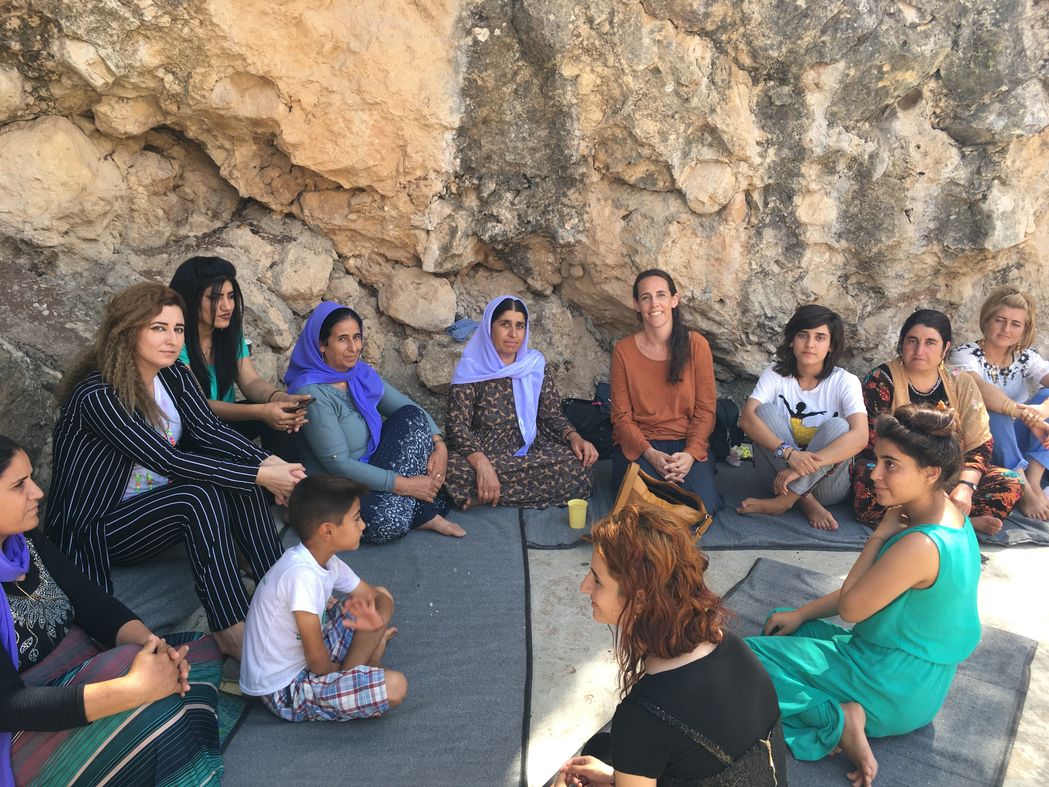
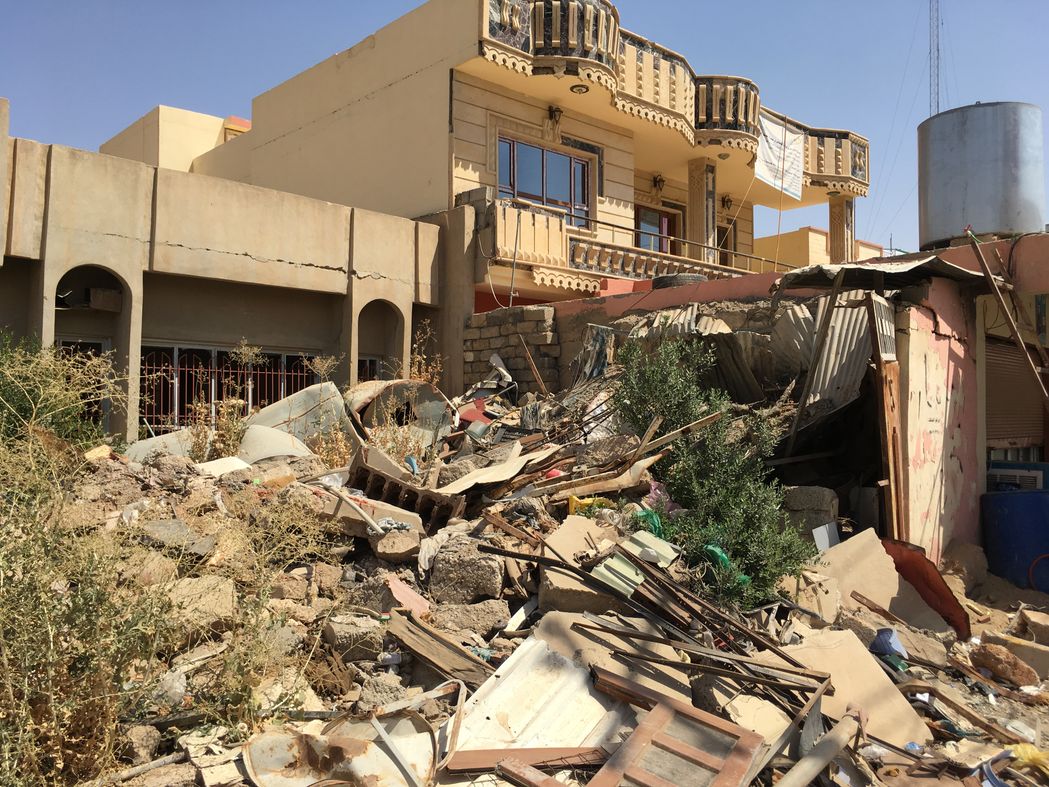
How do you decide on the allocation of financial resources?
ELS: The funds available to a community for the construction of houses are limited. As a rule, we can only repair part of the houses. Using a vulnerability index we try to identify the most vulnerable households in a community. These are mostly widows, elderly people, families with relatives with disabilities or families with many children and low incomes.
The next question becomes in what order the repairs should be planned: Are we, for example, to repair homes with less damage or homes that have been completely destroyed? In one region we were able to let the communities make these decisions themselves. In our opinion, their participation and early assumption of´responsibility are important if the project is to be well received and successful in the long term.
What particular challenges have you faced during implementation of the program?
ELS: There are so many challenges and new are constantly coming up! For instance, one community refused our assistance. Their reason: the fact that not all the houses could be repaired would cause an imbalance in the social fabric of their society. It worried me that we could no longer be of help to the households in the community. To give them help would correspond to my personal understanding of social justice. Nevertheless, I had to accept the decision of the community and its idea of justice. I found solace in realizing that the solidarity by which they live would not allow weak members of their community to be left behind.
Malteser International is working with local partners. What does this cooperation look like?
ELS: (Laughs) Without our partners we would be nothing! It is nice to see how cordial the working relationships here are and how committed organizations from various sectors are to the restoration project, even if there are sometimes frustrating periods for them. Our partners share their experiences during our cross-sector workshops. These workshops remind them once again that they are making an important contribution to a bigger picture and that is a very important motivation
for all of us.
Date: May 2019, Writer: Susanna Cho

